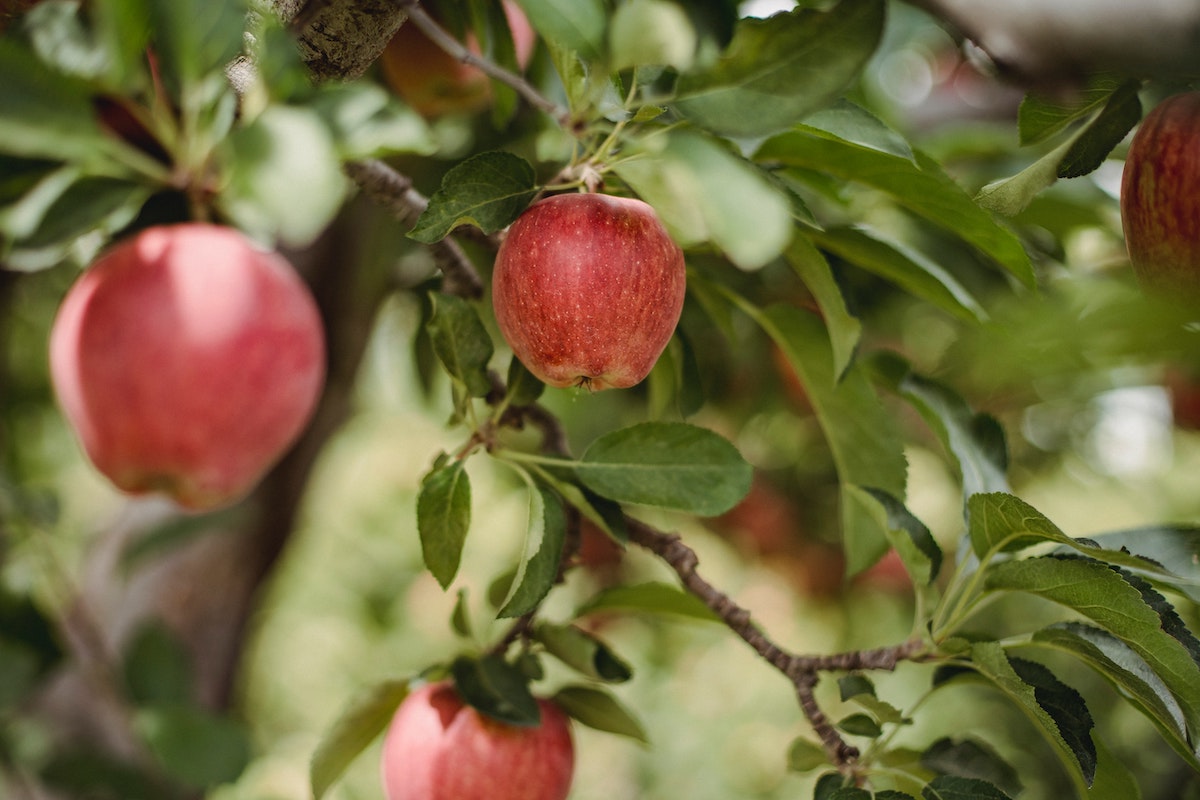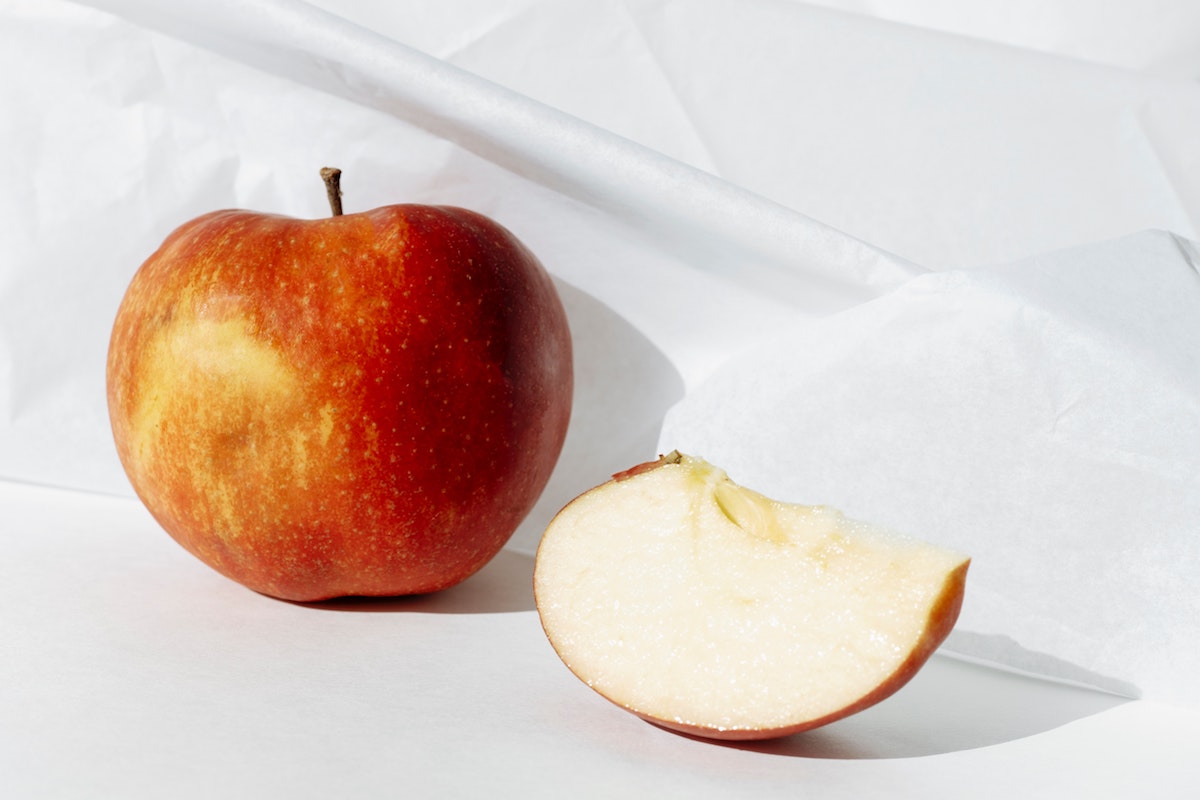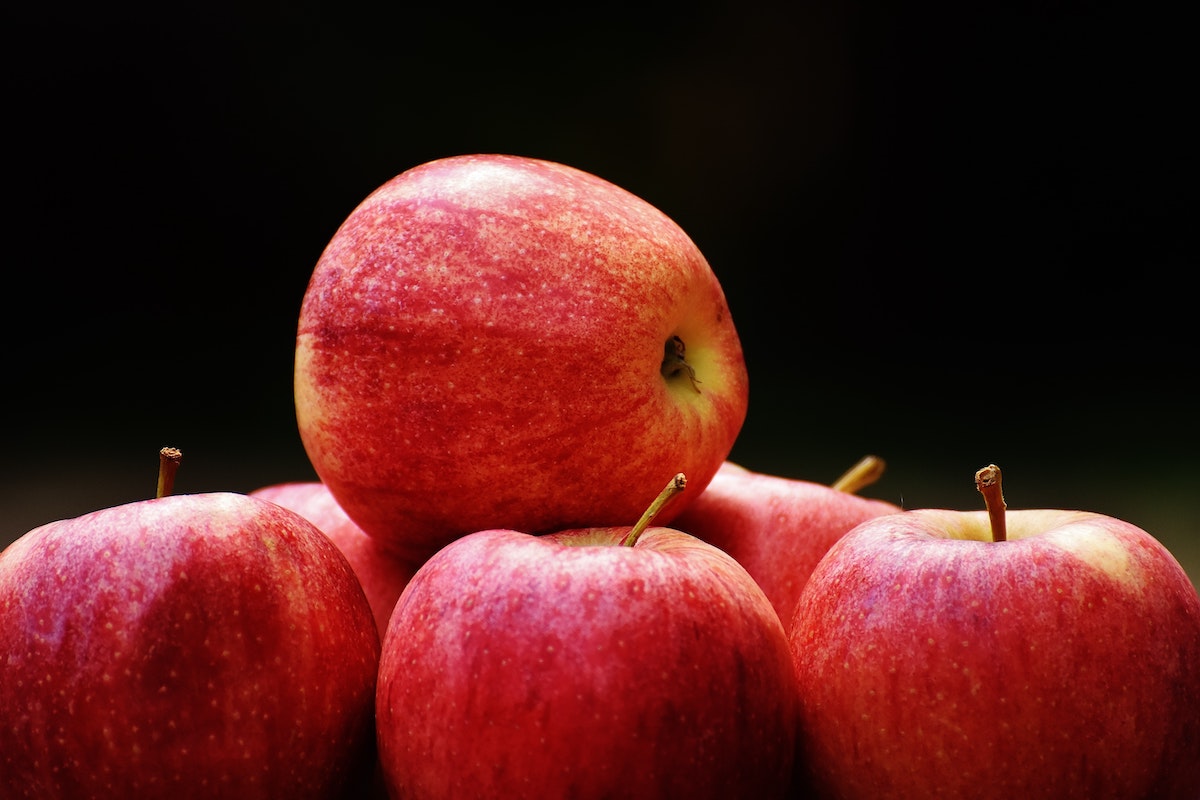
Pumpkins often dominate the conversation around fall produce, no thanks to Starbucks and Trader Joe’s. However, apples are a year-round fruit basket staple primed for picking in September. The humble apple fruit symbolizes back-to-school (the perfect gift for a teacher) and even keeping the doctor away. Are apples good for you? Of course. Will a daily apple prevent you from a sick visit to your primary care physician? The answer to that one requires nuance.
Still, looking at the apple nutrition facts, it’s clear that eating this fall superfruit offers many benefits. Notably, the vitamins and fiber in apples are packed with benefits that can do everything from boosting heart health to aiding digestion.
A pair of registered dietitians shared more on the health benefits of apples and fun ways to add this fruit to your regular diet.

Are apples good for you?
Absolutely. The list of health benefits of apples is a long one.
“Similar to other fruits, apples are a natural source of carbohydrates with negligible amounts of fat and protein,” said Cara Harbstreet, MS RD LD of Street Smart Nutrition. “An average medium apple also provides three to five grams of fiber. In particular, pectin — a type of fiber — can support a healthy gut microbiome.”
The antioxidants and vitamins in apples are also top-notch.
“Apples are high in antioxidants, which are compounds that scavenge for dangerous free radicals in the body and prevent them from doing cellular damage, including vitamin E, retinol, glycosides, and beta-carotene, as well as vitamin C, to a lesser degree,” said Maddie Pasquariello, MS, RDN.
Pasquariello added that apples exhibit what’s known as antiproliferative activity, “meaning they could inhibit the spread of cancer cells.” The potential armor-like benefits of apples don’t end there.
“Their role in increasing plasma antioxidants and their fiber content helps make apples protective against elevated cholesterol and LDL concentration, so, like other fiber/antioxidant-containing foods, they are especially good for heart health,” Pasquariello said.
Does the color of an apple matter?
A trip to the produce section of your local grocery store likely has many types of apples. Apples come in different colors. Are yellow apples healthier than red apples? What about green ones? Experts share that the apple’s color slightly changes the fruit’s nutrients.
“The health benefits of an apple will vary slightly depending on their color, which is due to the levels of different polyphenols they contain,” Pasquariello said. “Green apples, for instance, are known to be more tart and great for baking. They do not contain anthocyanidins or compounds known for a variety of anticancer, anti-inflammatory, and disease prevention effects, but these apples still offer plenty of benefits for health thanks to the presence of antioxidants like catechins and chlorogenic acid.”
Ultimately, Harbstreet and Pasquariello agree: Don’t stress too much over the color of the apple. Just chow down.
“As a dietitian, I don’t consider it to be a significant difference,” Harbstreet said. “Select apple varieties that taste good to you and fit your budget, knowing they can all provide benefits. Note that the color can also indicate ripeness or simply where the sun hit the fruit as it grew on the tree.”

How many apples should you consume per day?
Harbstreet notes that the current recommendation from the USDA is 5-9 servings of fruits and veggies daily.
“In my experience as a dietitian, it’s exceedingly rare to find folks who are eating too much produce, especially fruit,” Harbstreet said. “It’s far more likely you aren’t eating enough. I’d be hard-pressed to recommend a limit, so if apples are something you enjoy eating and want to have often, eating one to two daily can be a convenient way to get a few servings of fruit.”
However, Habstreet did offer a caveat:
“One thing to watch for is the compounding effect of fiber,” Harbstreet said. “If you aren’t accustomed to a high-fiber diet, be aware that apples are considered a high FODMAP food and may worsen GI symptoms for some people.”
For instance, people living with irritable bowel syndrome may consume foods considered low FODMAP diets to reduce symptoms.
OK. Does an apple a day keep the doctor away?
Apples have plenty of benefits. Guaranteeing you’ll never get sick and need a doctor is not one of them. The adage dates back over a century to a Welsh publication, where the concept read, “Eat an apple on going to bed, and you’ll keep the doctor from earning his bread.”
“The goal of this saying was to get people to consume a more nutritious diet during a time when medical practices, including preventative medicine, were not as advanced,” Pasquariello said. “Later, the media and interest groups like the U.S. Apple Association understandably adopted the adage, which has stood the test of time.”
Still, Pasquariello said consuming a daily apple will likely only help — not harm — your health.
“Eating an apple a day is not enough to ensure good health, but there are studies linking higher consumption of apples — and of fruits and vegetables in general — to weight loss, improved brain health, prevention of cancer and cardiovascular disease, and the use of fewer prescription medications,” Pasquariello said.
Creative ways to add apples to your diet
Eating a whole apple fruit is beneficial but may get boring. Some ways Harbstreet and Pasquariello recommend eating apples include:
- Dipped in peanut butter
- Added to sandwiches or wraps
- In salads (“My personal favorite way to incorporate apple is a fennel, cucumber, and green apple salad with vinaigrette, toasted walnuts, and bleu cheese,” Pasquariello said.)
- Toppings for breakfast-table staples like waffles, pancakes, and overnight oats
If you need more advice on incorporating apples into your diet or increasing your produce consumption, speak with a registered dietician.



